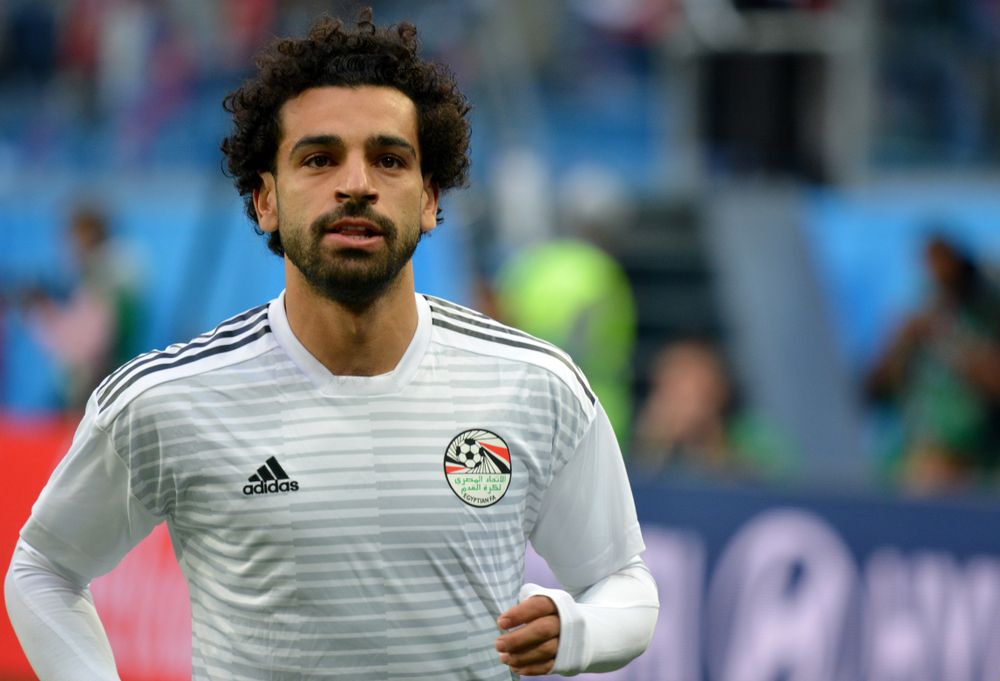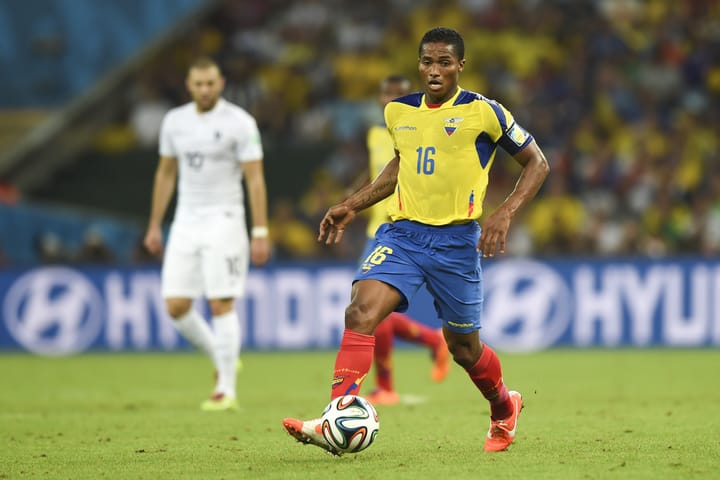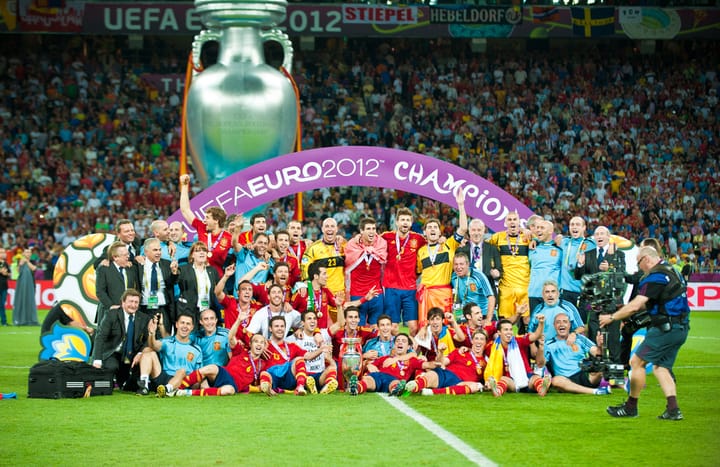When the Pharaohs ruled: The Five Greatest Triumphs of the Egyptian National Soccer Team
Egypt, throughout its rich footballing history, has experienced a plethora of momentous victories and memorable performances. This article will chronicle the five greatest successes of the Egyptian national soccer team.

In the heartland of the ancient pyramids, a modern spectacle unfolds on the soccer fields, where the Egyptian national soccer team, affectionately known as the Pharaohs, exemplifies the power, persistence, and passion inherent in Egypt's vibrant culture. Tracing their roots back to the inaugural Africa Cup of Nations in 1957, the Pharaohs have a history filled with triumphs that reflect the resilience of a nation and its love for the beautiful game.
Egypt, throughout its rich footballing history, has experienced a plethora of momentous victories and memorable performances. From record-breaking Africa Cup of Nations (AFCON) titles to noteworthy participations in the FIFA World Cup, the Pharaohs have engraved their name in the annals of soccer time and again. This article will chronicle the five greatest successes of the Egyptian national soccer team, taking readers on a journey through their journey, from their early victories in the AFCON to their tenacious displays on the world stage. Join us as we delve into the Nile's depths, unearthing the Pharaohs' golden chapters and celebrating their indomitable spirit that continues to inspire future generations.
World Cup 1990
The 1990 FIFA World Cup, held in Italy, was the second time that Egypt's national soccer team had qualified for the tournament, with the first being in 1934.
Egypt was placed in Group F alongside England, the Netherlands, and Ireland. Their performance was commendable, although they didn't advance past the group stage.
Egypt began the tournament by drawing 1-1 against the Netherlands, a strong team that had finished as runners-up in the previous European Championships. The Netherlands took the lead with a goal from Wim Kieft, but Egypt equalized with a goal from Magdi Abdelghani. This match marked Egypt's first World Cup goal since 1934. The second match against Ireland ended in a goalless draw, leaving Egypt with two points after two matches. In their third and final group match, Egypt played against England. Mark Wright scored the only goal of the match, securing a 1-0 victory for England. This result led to Egypt's elimination from the tournament.
Even though they didn't advance beyond the group stage, Egypt's performance in the 1990 World Cup was notable. They were competitive in each match and held their own against strong European teams. This tournament marked a highlight in Egyptian football history, as it was their first World Cup appearance in over 50 years. The team's tenacious defending and resilient play earned them respect on the international stage.
African Cup of Nations 2006
The 2006 Africa Cup of Nations was a special tournament for the Egyptian national soccer team, not just because they won the tournament, but also because it was held on home soil, giving the team a significant home-field advantage and the opportunity to celebrate with their fans in Egypt.
Egypt was placed in Group A alongside Libya, Morocco, and the Ivory Coast. They started the tournament strong with a 3-0 victory over Libya. This was followed by a 0-0 draw against Morocco and a 3-1 victory over the Ivory Coast, which meant they finished top of their group and advanced to the quarterfinals.
In the quarterfinals, Egypt faced the Democratic Republic of the Congo. It was a high scoring game with Egypt emerging victorious with a 4-1 win, which led them to the semifinals. The semifinal saw Egypt face Senegal. The Pharaohs managed to secure a 2-1 victory, progressing to the final where they would face the Ivory Coast once again.
The final match against Ivory Coast on February 10, 2006, was a tense affair. The match ended 0-0 after extra time, leading to a penalty shootout. Egypt won the shootout 4-2, with the winning penalty kicked by Mohamed Aboutrika. This victory marked Egypt's fifth Africa Cup of Nations title.
Several Egyptian players received individual accolades for their performances during the tournament. For instance, striker Ahmed Hassan was named the tournament's Best Player, and goalkeeper Essam El-Hadary was awarded Best Goalkeeper.
The victory in the 2006 Africa Cup of Nations was a testament to the strength of Egyptian soccer at the time and marked the beginning of a period of dominance, with Egypt going on to win the next two Africa Cup of Nations tournaments in 2008 and 2010.
African Cup of Nations 2008
For the 2008 Africa Cup of Nations tournament held in Ghana, the Egyptian national soccer team, known as the Pharaohs, had an impressive run. They were drawn into Group C along with Cameroon, Zambia, and Sudan.
Egypt defeated Cameroon 4-2 in their first match, beat Sudan 3-0 in their second match, and finished the group stage with a 1-1 draw against Zambia. Egypt's strong performance saw them top their group and advance to the quarterfinals. Egypt faced off against Angola in the quarterfinals and secured a 2-1 victory, booking their place in the semifinals.
The Pharaohs faced the Ivory Coast in the semifinals, a team they'd faced in the 2006 finals. Egypt emerged victorious with a 4-1 win, propelling them to the finals. In the final, Egypt faced Cameroon for the second time in the tournament. A 77th-minute goal from Mohamed Aboutrika led Egypt to a 1-0 victory, securing Egypt's sixth Africa Cup of Nations title.
Several Egyptian players received individual accolades for their performances during the tournament. Hosni Abd Rabo was named the Player of the Tournament. This tournament further cemented Egypt's status as a powerhouse in African soccer.
African Cup of Nations 2010
The 2010 Africa Cup of Nations held in Angola was a historic tournament for the Egyptian national soccer team, marking their third consecutive title win in this tournament and the first nation to ever do this.
Egypt was placed in Group C with Nigeria, Mozambique, and Benin. The Pharaohs dominated their group, defeating Nigeria 3-1, Mozambique 2-0, and Benin 2-0. Their impressive performance in the group stage confirmed their position as one of the favorites of the tournament.
In the quarterfinals, Egypt faced Cameroon. The match was fiercely contested, but Egypt came out on top with a 3-1 victory after extra time. The Pharaohs then faced Algeria in the semifinals, in what was a rematch of their heated World Cup qualifying playoff match a few months prior. Egypt came out with a resounding 4-0 victory, showing their dominance and setting up a final against Ghana.
The final was a tense match against Ghana. The only goal of the game came in the 85th minute from Gedo, who secured Egypt's record-extending seventh Africa Cup of Nations title and third in a row.
Once again, Egypt's players scooped up individual accolades, with Gedo winning the top scorer award with five goals despite not starting a single game in the tournament.
The 2010 victory made Egypt the first nation to win three consecutive Africa Cup of Nations titles. Coach Hassan Shehata also made history by becoming the first coach to win three consecutive Africa Cup of Nations titles.
World Cup 2018
The 2018 FIFA World Cup, held in Russia, marked the third time Egypt had qualified for the prestigious tournament and their first appearance in nearly 30 years since Italy 1990.
Egypt's road to qualification was a thrilling one, with the pivotal moment arriving in their fifth match against Congo in Alexandria. The match was tied 1-1 in the 95th minute when Egypt was awarded a penalty. Liverpool star Mohamed Salah converted the penalty to send Egypt to the World Cup, leading to jubilant scenes across the nation. Egypt finished the group with 13 points, topping the group and securing their World Cup spot.
In the World Cup, Egypt was drawn into Group A with Uruguay, Russia, and Saudi Arabia.
In their opening match, Egypt faced Uruguay. It was a tough match, and Egypt defended well, keeping the game goalless until the 89th minute, when Uruguay's José Giménez scored a heartbreaking late goal, giving Uruguay a 1-0 victory.
In the second match, Egypt faced the host nation, Russia. Egypt lost 3-1, with Mohamed Salah scoring the only goal on a penalty. The final group stage game against Saudi Arabia ended in a 2-1 defeat, with Salah scoring Egypt's lone goal.
Unfortunately, despite the high hopes, Egypt was unable to progress beyond the group stages, losing all three matches. However, their qualification for the tournament after such a long gap was an achievement in itself, reflecting the growth and resilience of the team. It also signaled the rise of Mohamed Salah as a global football star.




